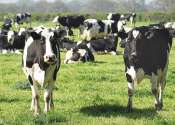Air on Colorado's Front Range was more polluted than usual this summer—and wildfires were not to blame
Metro Denver and the northern Front Range just experienced one of the worst ozone pollution seasons in 10 years, with 40 days when air quality measurements exceeded federal standards.









